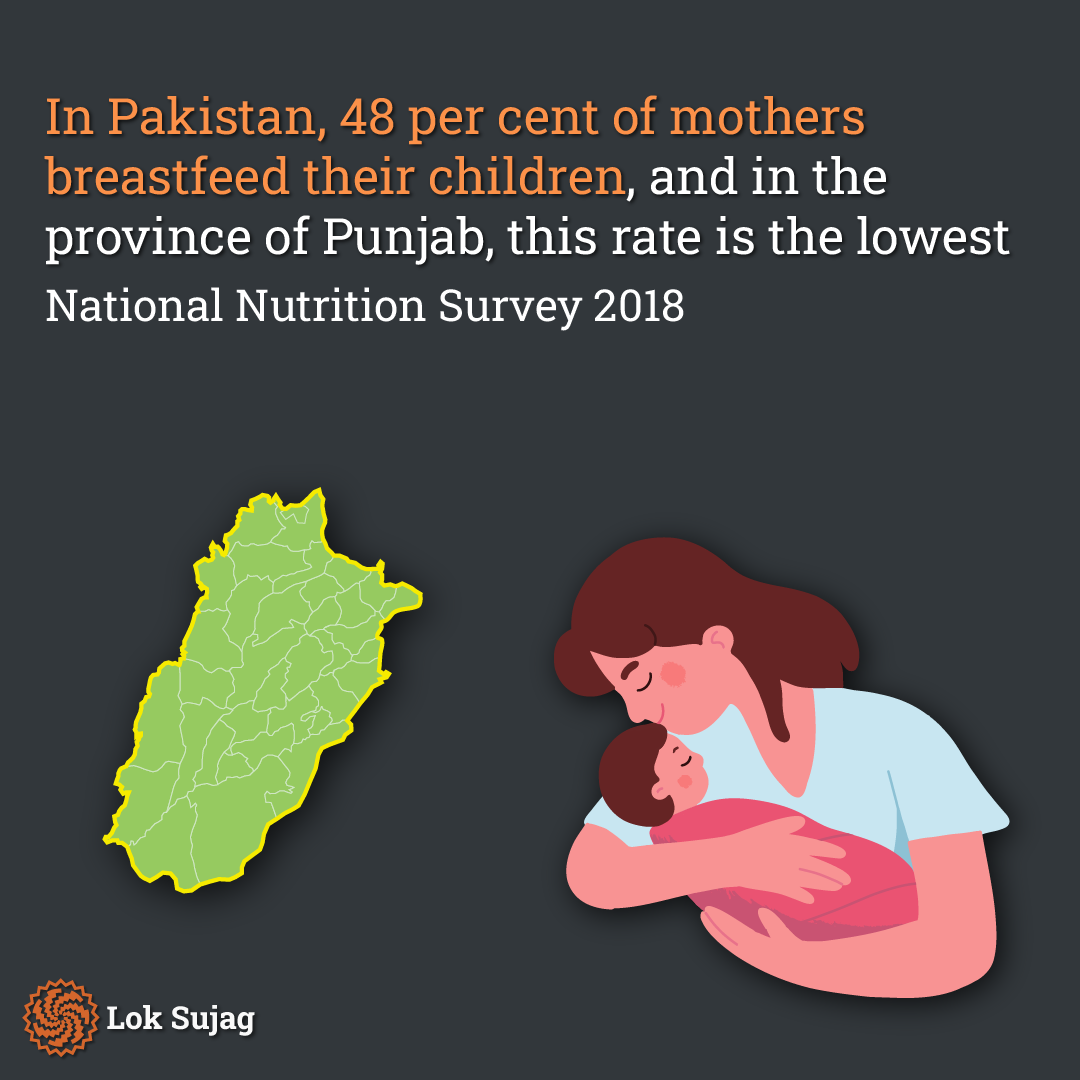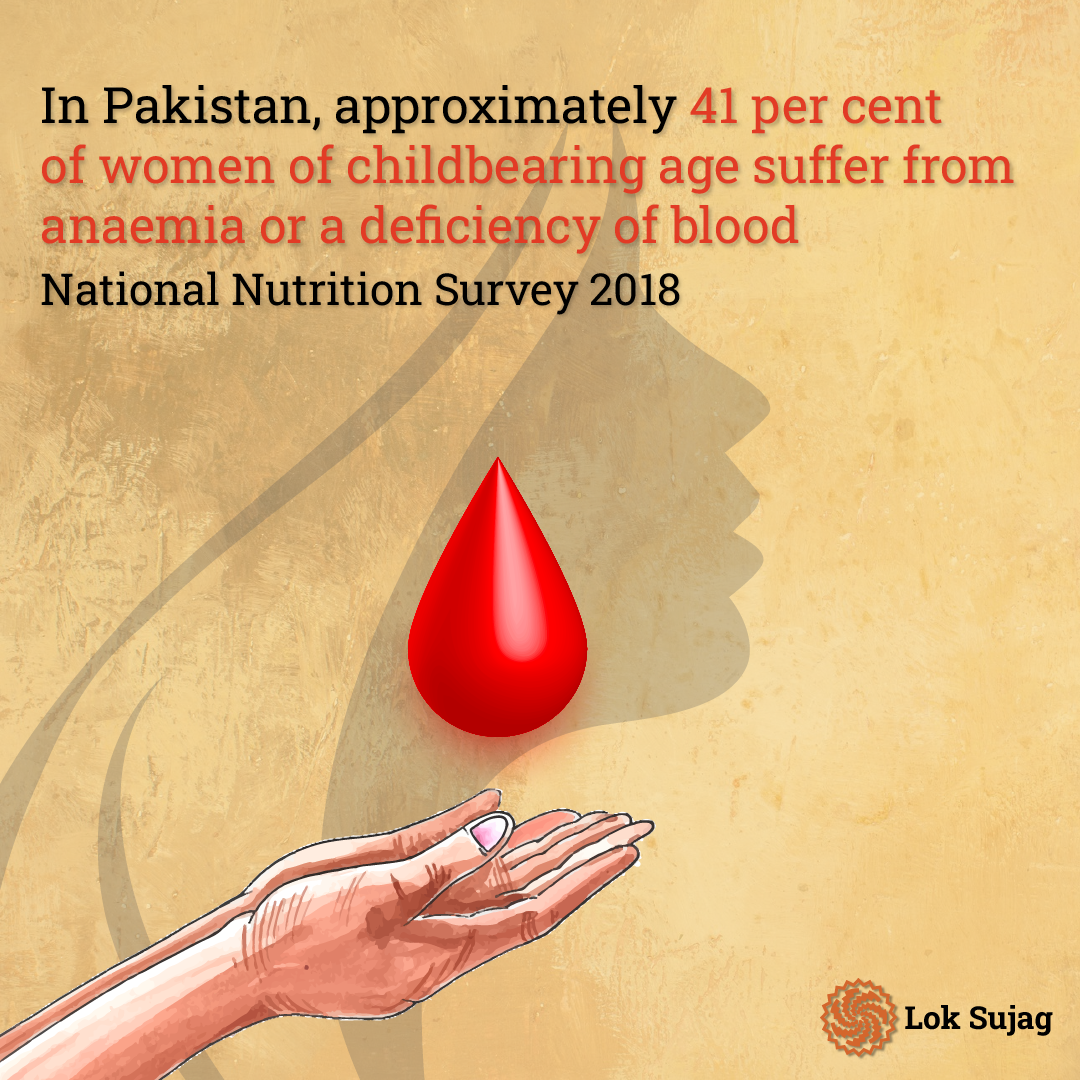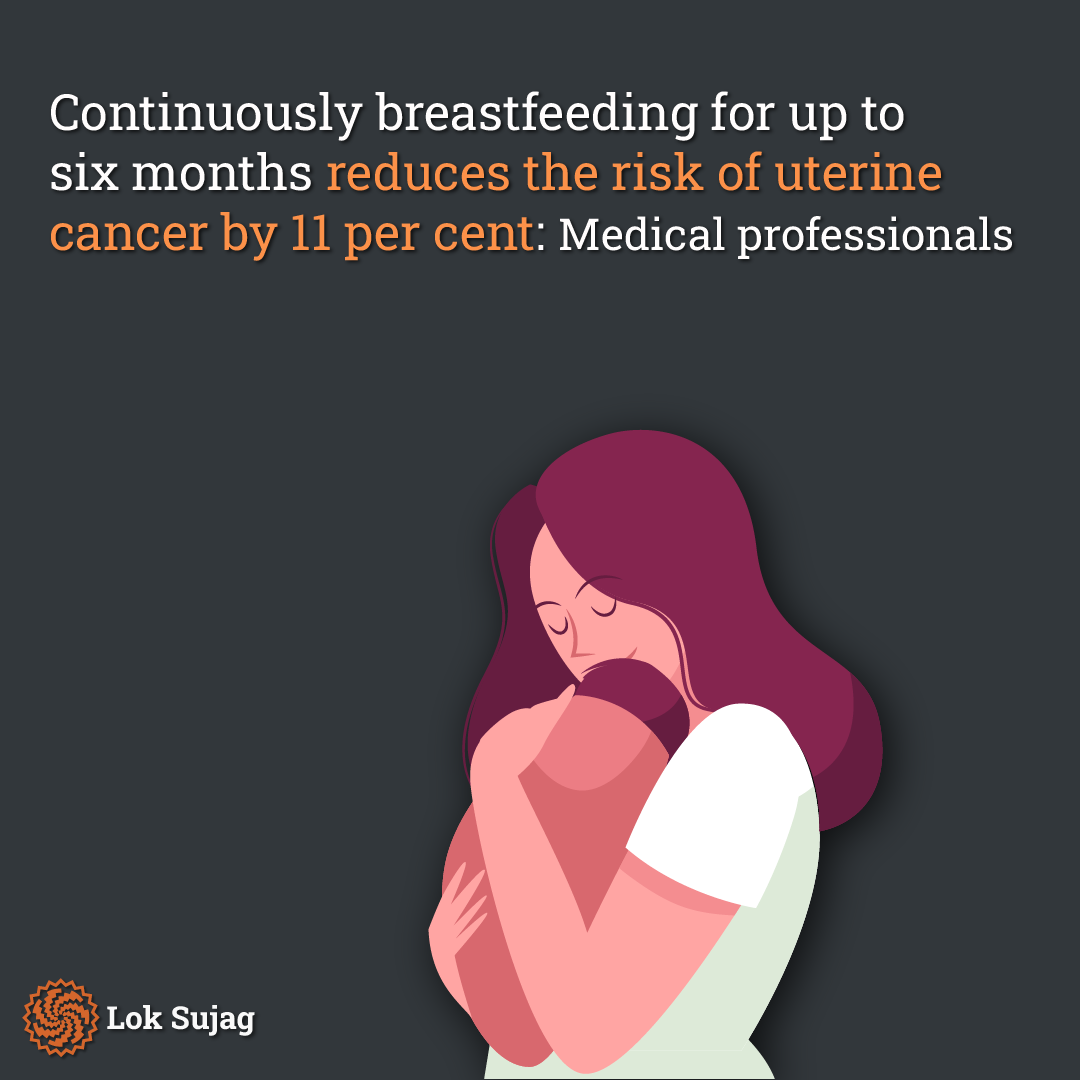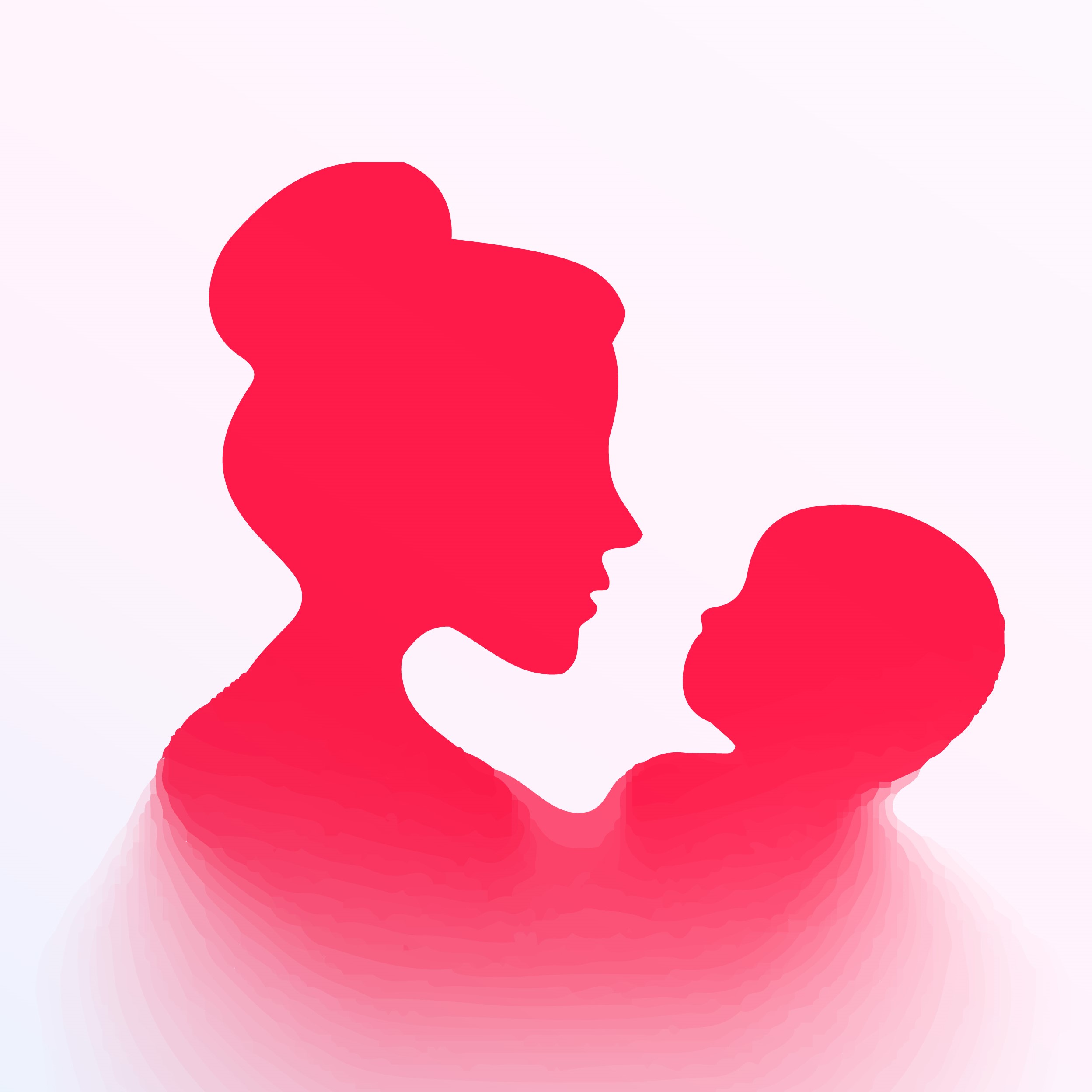Sakeena Bibi, a mother of four, has been residing in a makeshift settlement near the railway junction in Kundian for the past ten years. She is 30 years old and spends her days collecting and sorting garbage and scrap materials with her husband, hoping to earn some income by selling them. Due to a lack of proper nutrition and excessive labour, her health has been deteriorating gradually.
Sakeena explains that she suffered from blood deficiency even before her daughter’s birth six months ago. Due to the inadequate supply of mother’s feed, her daughter has been growing weaker and losing weight. According to Sakeena, her milk is insufficient for her daughter’s needs.
According to health experts, women require proper nutrition and rest from pregnancy to childbirth and breastfeeding. If a mother is weak, there is a significantly higher likelihood of delivering underweight and frail babies.

According to the National Nutrition Survey of 2018, approximately 41 per cent of women in Pakistan suffer from anaemia or a blood deficiency by the time they become mothers.
The World Health Organisation says that mother’s milk benefits the child’s health. It helps protect the child from various diseases and infections while maintaining the immune system. It also assists in preventing diarrhoea and vomiting.
According to the organisation, exclusive breastfeeding for infants for the first six months is recommended.
According to the National Nutrition Survey, 48 per cent of mothers in Pakistan breastfeed their children, and this rate is the lowest in the province of Punjab.
Some mothers do not breastfeed their children due to non-scientific and superstitious beliefs. Nooran, a 25-year-old woman, lives in the same area where Sakina resides. Last year, she was diagnosed with breast cancer and underwent surgery.

Nooran says that in January 2022, she gave birth to a son. Initially, she had difficulty breastfeeding him, but he began after some time. A woman told her her milk was bitter, so the child didn’t drink it.
Acting upon the woman’s advice, Nooran began feeding her son buffalo milk when he was just two months old. After some time, she started experiencing chest discomfort, pain, and fever. Initially, she tried home remedies, but they didn’t make a difference.
In September 2022, she got a check-up at Gandhi Hospital in Kundian, from where she was referred to the District Headquarters Hospital in Mianwali. There, a gynaecologist informed her that she had breast cancer that was spreading and she would need surgery to remove it.
Nooran now believes that not breastfeeding not only affected her child but also had an impact on her own health.

Dr Amina Shafiq at District Headquarters Hospital in Mianwali says that most women from rural areas suffer from anaemia or a blood deficiency. They often lack access to proper nutrition and clean drinking water. They also bear a heavier workload than urban women, which leaves them with less strength to breastfeed their children properly, affecting their health. Many women facing nutritional deficiencies also face complications during pregnancy.
Mrs Tahir is a teacher at a private college in Kundian. She breastfeeds her newborn baby and sometimes, despite fatigue, does not compromise on it. She says that the lack of proper and balanced nutrition can decrease a mother’s milk supply.
Also Read

Harmful menstrual pads: Nobody talks about it openly
Dr Amina Shafiq says that various factors affect breastfeeding for mothers. For this process, cooperation from the family, personal comfort, and proper nutrition are essential.
According to her, breastfeeding for up to six months reduces the risk of uterine cancer in women by 11 per cent. The possibility of breast cancer is also reduced. Mother’s milk is rich in antibodies that protect against infections and other proteins. The fatty acids in milk also aid in developing the baby’s brain.
On September 2, Global Breastfeeding Week was celebrated in Kundian along with the other parts of the country. On this occasion, Lady Health Worker Farzana Kausar explained that during Breastfeeding Week, awareness was raised among women about the importance of the mother’s health, balanced nutrition, and proper breastfeeding techniques for the baby. She emphasised that women in marginalised areas often face issues due to traditional beliefs, leading them to avoid seeking guidance and hide their problems, risking their lives.
Published on 28 Sep 2023



















